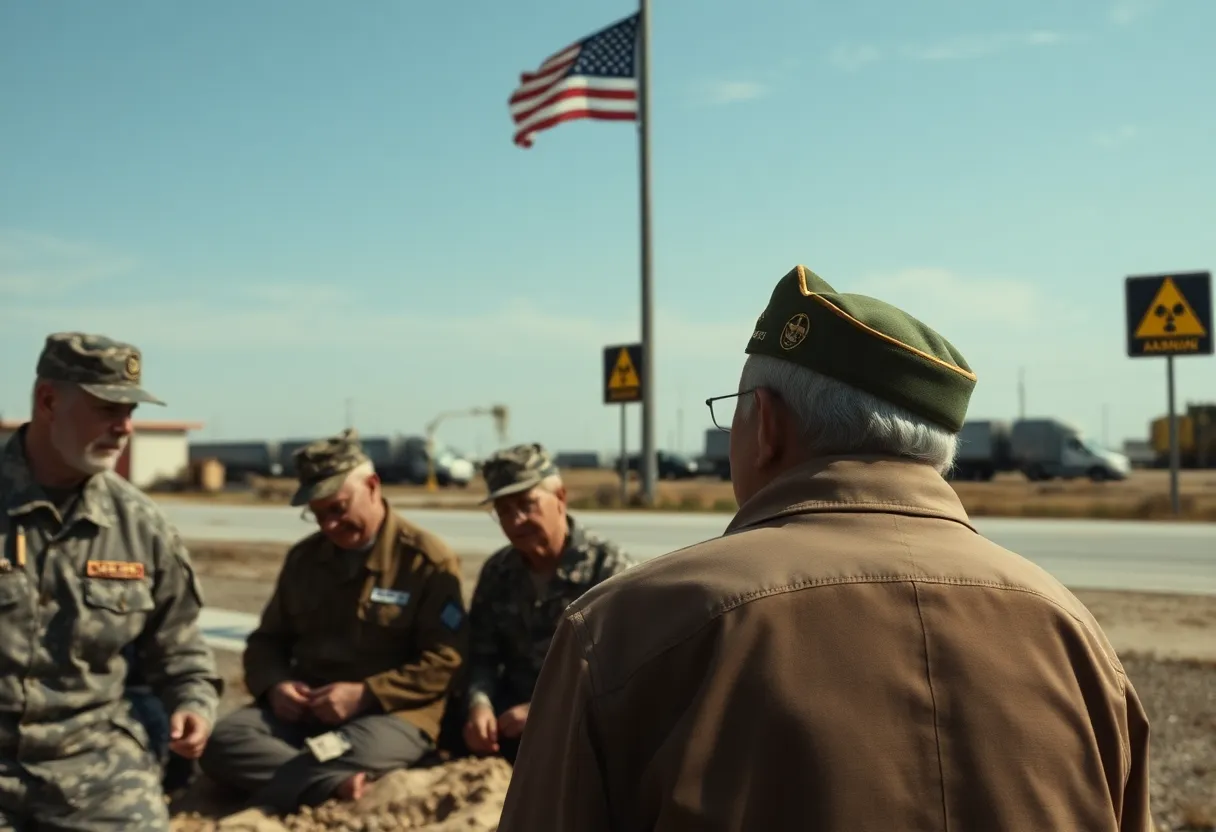News Summary
Nearly 3,000 Americans die annually from mesothelioma, a cancer linked to asbestos. Veterans are especially vulnerable due to exposure during military service.
The Silent Epidemic: Mesothelioma and Asbestos Exposure in Veterans
A staggering reality looms over the United States as nearly 3,000 Americans die annually from mesothelioma, a rare cancer primarily linked to asbestos exposure. This number, reported by the Environmental Working Group (EWG), is just a fraction of the total casualties associated with asbestos, which claims 12,000 to 15,000 lives each year. The grim statistics highlight a pressing public health crisis, with veterans disproportionately affected due to their prolonged service in environments teeming with hazardous materials.
Asbestos: The Unseen Enemy
Asbestos, a mineral once lauded for its fire-resistant properties, was a staple in military applications from the 1920s until the late 1970s. The U.S. Navy, Army, and Air Force extensively utilized this deadly material in equipment and building maintenance, unknowingly exposing countless servicemen and women to its toxic effects. Today, approximately 30% of mesothelioma cases reported are among veterans, indicating a clear correlation between military service and asbestos-related health issues.
Long-Term Health Implications
The tragic irony of asbestos exposure lies in its latency. Fibers can remain dormant in the human body for up to 50 years before symptoms manifest. This delayed onset complicates the diagnosis, with studies indicating that 14-50% of mesothelioma cases are misdiagnosed due to symptom overlap with other lung diseases. As a result, many veterans are left battling advanced-stage mesothelioma, where treatment options become nearly nonexistent.
The Impact on Veterans
In California alone, there were 27,080 asbestos-related deaths, including 5,100 from mesothelioma between 1999 and 2017. Pennsylvania followed closely with 17,717 deaths, of which 3,257 cases were due to mesothelioma. The situation has become so dire that, as of 2022, roughly 30% of Pennsylvania veterans were classified with disabilities resulting from toxic exposures during their service.
Early Detection: The Key to Survival
Despite the risks, early diagnosis remains crucial for veterans facing asbestos-related conditions. Diagnostic imaging tests such as X-rays, CT scans, PET scans, and biopsies are recommended to facilitate timely detection. Without such interventions, many patients miss the window for potential treatment, culminating in tragic outcomes.
Proposals for Change
In light of this burgeoning health crisis, proposals are emerging to establish a national veterans’ asbestos exposure database. This initiative aims to monitor and manage at-risk individuals, providing necessary healthcare access and benefits. A similar registry for veterans exposed to Agent Orange, another toxic substance widely used in military operations, aims for the same goal, yet the Defense Department has failed to update its list of herbicide testing sites for over a decade.
Legislation for Veterans’ Health
Moreover, with the passage of the PACT Act, expedited compensation is available for veterans exposed to airborne hazards, including the infamous Agent Orange. However, the waiting time for veterans to see their exposures recognized by the Department of Veterans Affairs (VA) averages more than 31 years, showcasing a bureaucratic urgency to overhaul the toxic exposure claims process.
The Future of Asbestos Regulations
Shockingly, asbestos remains unbanned in the United States, despite its well-documented carcinogenic properties. Continued advocacy is necessary to safeguard the health of veterans and civilians alike from the ongoing risk of exposure. As researchers indicate, sites such as Fort Ord, California, have demonstrated significant environmental contamination, further complicating veterans’ health trajectories.
The need for legislative improvements and a proactive approach regarding exposure sites cannot be overstated. Veterans have served their country valiantly, yet they now find themselves entangled in a silent epidemic that can lead to devastating health consequences. Addressing this crisis requires a concerted effort, raising awareness and pushing forward with concrete measures to protect those who protected us.
Deeper Dive: News & Info About This Topic
HERE Resources
Context Therapeutics Launches Phase 1 Trial for CT-95 Antibody
Big Breakthrough in Mesothelioma Treatment: CT-95 Trial Begins
Context Therapeutics Initiates Phase 1 Trial for CT-95 in Mesothelioma
Old Spice Talcum Powder Lawsuits Heat Up: Victims Seek Justice
Grimsby Central Library Closes Indefinitely Due to Asbestos
Grimsby Central Library Closed Over Water Leak and Asbestos Risk
Roofing Contractor Faces Penalties for Asbestos Safety Violations
Grimsby Central Library Closes Indefinitely Over Asbestos
Major Asbestos Inspection Failures in NYC Schools Exposed
Library Board Meeting Sparks Controversy Over Renovation Plans



















